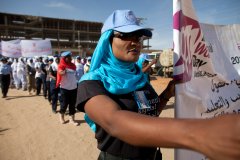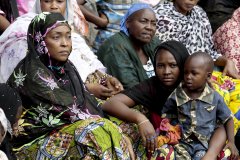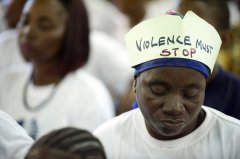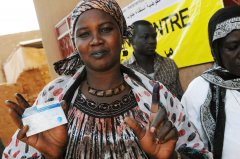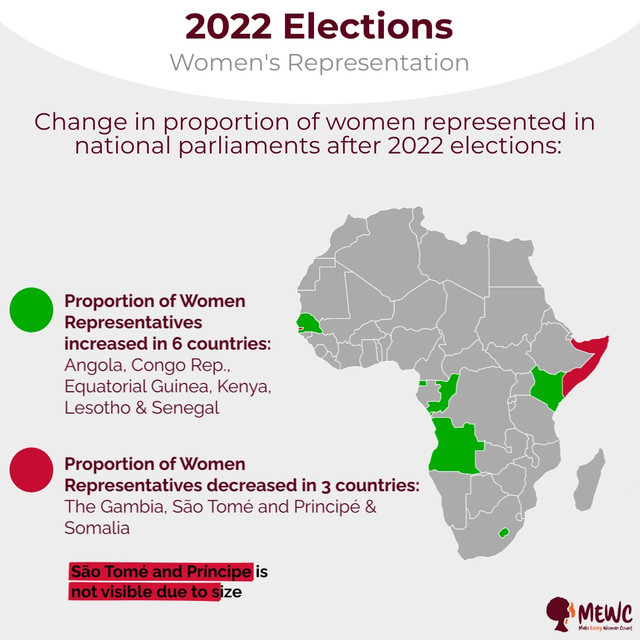Gender Issues Showlist
Women, Peace & Security
UNSCR 1325 calls on all parties to: protect and respect the rights of women and girls in conflict & post-conflict; increase women participation in all conflict resolution, peacekeeping and peace-building & to end impunity by prosecuting perpetrators of sexual and other violence on women and girls
index.php?option=com_content&view=category&id=56&Itemid=1913
Human Rights of Women
Thirty six years after the adoption of CEDAW, many women and girls still do not have equal opportunities to realize rights recognized by law. Women are denied the right to own property or inherit land. They face social exclusion, “honor killings”, FGM, trafficking, restricted mobility, early marriage,...
index.php?option=com_content&view=category&id=44&Itemid=1908
Violence Against Women
Violence against women is the most shameful human rights violation. Gender based violence not only violates human rights, but also hampers productivity, reduces human capital and undermines economic growth. It is estimated that up to 70 per cent of women experience violence in their lifetime
index.php?option=com_content&view=category&id=69&Itemid=1912
Political Participation & Leadership
Where women are fully represented, societies are more peaceful and stable. Women political participation is fundamental for gender equality and their representation in positions of leadership must be a priority for all Africans governments.
index.php?option=com_content&view=category&id=65&Itemid=1911
Latest News
- COTE D'IVOIRE: South-South Meeting to Promote Gender Equality and Combat Deforestation
- RWANDA: Rwanda Set to Launch Cervical Cancer Elimination Plan
- NIGERIA: Over 5,000 Nigerian Women Stranded in Iraq - Govt
- SUDAN: Healthcare Collapse Threatens Pregnant Women in Sudan's Sharg El Nil
- GHANA: President Nominates 12 More Ministers
- Senegal: Parliamentary election 2024
- Mauritius: Parliamentary election 2024
- Ghana: Presidential and Parliamentary Elections
- Botswana: Parliamentary elections 2024
- Algeria: Presidential Election 2024
INTERNATIONAL: ECOWAS/WANEP Review UN Security Council Resolution
Source: All Africa
A conference of the Economic Community of West African States (ECOWAS) in collaboration with the West Africa Network for Peace building (WANEP) opened in Accra on Tuesday to review the implementation of the United Nations Security Council Resolution 1325 (UNSCR 1325) 2000 in West Africa.
The meeting is under the theme "15 years of Implementing UNSCR 1325 in West Africa: Looking Back and Looking Forward".
The UNSCR 1325 gave the groundbreaking message of the critical role that women have to play in processes of conflict prevention, resolution and peace building, as well as the specific impact of war on women's and girls' lives.
In her welcome address, Dr. Fatimata Dia Sow, the Commissioner of Gender and Social Affairs, ECOWAS Commission, represented by Dr. Sintiki Tarfa Ugbe, Director of Gender, said that since the passage of the Resolution, the ECOWAS Commission has focused on the development of normative framework to guide its conflict prevention and resolution work in West Africa through the adoption of the ECOWAS Conflict Prevention Framework (ECPF) in 2008.
She said that the framework aims at mainstreaming conflict prevention into ECOWAS' policies and programmes; which includes Women, Peace and Security.
In addition, Dr Sow said that the 15 years anniversary of the UNSCR 1325 provides the participants at the Conference with the opportunity to reflect and discuss on how to re-enforce the gains made and what needs to be done to re-energize their commitments.
She re-affirmed the commitment of ECOWAS to the new UNSCR 2242 passed on the 13th of October, 2015 and welcomed the recommendations of the Global Study on the UNSCR 1325.
Ghana's Minister of Gender, Children and Social Protection, Nana Oye Lithur, represented by Mr John A. Ackon, Deputy Minister of Gender, Children and Social Protection, emphasized the need to develop strategies that will place women at the centre of conflict prevention and peace building, adding that, it is critical to mainstream the content of the ECOWAS Framework on Women, Peace and Security at all policy levels.
Speaking earlier, Chukwuemeka Eze, Executive Director, WANEP, said ECOWAS through its programmes, has continued to convince Civil Society Organizations (CSOs) of its willingness to truly transform from an ECOWAS of States to an ECOWAS of People.
According to Mr. Eze the Resolution UNSCR1325 marked the formal international recognition, at the highest institutional level, of the importance of women to peace building and the necessity of adopting a gender sensitive approach to conflict resolution in order to meet women's needs.
The Conference brings together representatives of governments and women's groups from across West Africa to deliberate on topical issues on women, peace and security and to also develop strategies that would place women at the centre of conflict prevention and peace building.
The two days high level Conference will highlight the successes, best practices and lessons learnt in implementing the UNSCR 1325 National Action Plans (NAPs) in West Africa and to examine the challenges and the way forward, having in view the emerging peace and security threats in the region.
The Conference will also create a platform for women's groups, National Gender/Women's Ministries, representatives from inter-governmental organizations and other stakeholders to reflect and share their experiences of working with the Resolution.

